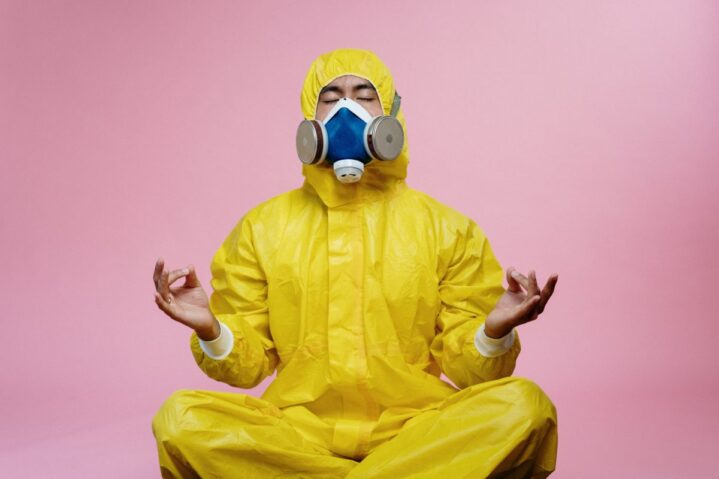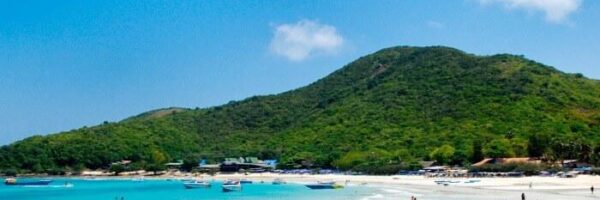
The future after Covid-19 or the future of Covid-19: a pandemic or something more?
2020 has been undoubtedly been an unprecedented year so far. The start of a new decade was for many a sign of new hope, beginnings and opportunities. The chances however are looking slim. With some analysts predicting international travel not to rebound until 2022, its left many wondering if it will ever return to the same again. This fear hasn’t come out of a vacuum, the United Nation’s Framework Response seems to encapsulate the consensus amongst us all. ‘The COVID-19 pandemic is far more than a health crisis: it is affecting societies and economies at their core… it will most likely increase poverty and inequalities at a global scale’. The International Monetary Fund has already predicted a minus 3% global growth in April of this year which is an even worse recession than the Global Financial Crisis back in 2009. And dolphins have been seen swimming through the canals of Venice. It has most certainly been an unprecedented year to say the least. I’ am Alex, an MA student with studies cut short and resumed online due to the outbreak, with the intention of starting a career in Thailand after the pandemic recedes and international flights can start back. I’ have travelled intermittently through China, Vietnam and Thailand over the past two years, but now back in the UK, I wonder what the state of international travel, and even trade, with expensive tariffs imposed on commerce due to limited cargo in and out of countries, will come of over the next few months. My desire to travel the world started back when I was in Beijing, as a second-year student enrolled on a two -week summer camp created to showcase the innovation China had to offer, from the latest technology put in place for research purposes in universities, which included virtual and augmented reality devices, golf simulators, and a twenty- minute video telling us why Beijing is so great. The guided tour of course seemed another propaganda mission, but nevertheless come off inspiring to me, who until then had not travelled any farther than Spain. The prospect of this new world in another country sparked an interest I never knew existed. Just crossing the street was a mammoth task, where I was told traffic never stops, and the humidity so intense I could barely breath. But it was great, I started a relationship, and for the first time found a meaning and a use for my degree, post-graduation. I sensed that a life in Asia was at some point in time going to be inevitable.
It wasn’t another year until I reached Asia again, this time further south to Hanoi and Bangkok where I met a friend back from the UK who had lived there for some time. We met, had some drinks in Khaosan Road and talked about our plans. Having travelled around Vietnam for the past few weeks and eventually making it back down to Bangkok, I showed him some of the negatives of my trip, and yes shooting on film in 2019 might seem strange but as a serious photographer I cannot help resist the warm textures that film offers, and mixing that with such vibrant Asian street life is sublime. It’s my intention to discover the rest of Asia too and quite possibly the world. Everything today is documented and remembered, making material more re-written than ever original, but one should not be daunted, we should learn as creatives to enjoy the tools of the digital age accordingly. Learning to synchronise old media with new technologies could and is already in many aspects here.
But it does make one wonder the future after Covid-19, or, the future of Covid-19 if we must face living with it. Whilst the lockdown has brought a halt to life as we know it, it all doesn’t seem to appear doom and gloom. New research published by Department of Education claims 47% of young people have learned a new skill or brushed up on an old one since the lockdown began. With another 44% becoming more affiliated with family and friends, though I do no’t see much else there is to do. But even so, 71% are still worried about their stake within academia and 46% are concerned about mental health issues. Being closer to the people we are fond with what has appeared to reinforce solidarity and communal strength, re-adjusting again to a time where migration wasn’t so popular, and globalisation seemed futuristic. We have come to understand family again, cherishing the small moments of opportunity to meet loved ones and friends in between the gaps of restrictions. Andy Haldane, chief economist has even recognised a ‘surge in small neighbourly acts of generosity’, with Bronwen Maddox claiming ‘British people will come out of this with an even greater desire for better health services and care for the elderly.’ This is sourced from an article published by Alex Brummer in the Daily Mail who likens the Covid-19 crisis as that to the Second World War (WW11), as Churchill and his coalition aimed to find a way to restore and find ‘social and economic settlement’. The Beveridge Report was subsequently founded to try and conquer what was thought of at the time as five main goals; ‘idleness, Ignorance, disease, squalor and want’. And as Alex states that more casualties have resulted from Covid-19 than even the Blitz, he stresses that ‘Post-Covid Britain deserves nothing less’. In a statement published on 23rd June 2020, a similar scheme can be seen, this time in the manifestation of ‘task forces’, setup by the government in order to establish safe and ‘COVID Secure’ measures to allow the hospitality industry to reopen and try to ‘restore’ the economy. Many have flirted with the term ‘anthropause’, meaning a sudden and widespread pause in the mobility of people around the world. But whilst we may be concerned about the cultural and economical fallout of the crisis, it has led researchers to an ‘unprecedented’ opportunity to ‘build a global picture of animal responses by pooling large number of datasets’. Usual methods of research to determine animal behaviour include two main approaches, spatial and temporal changes. The spatial aspect involves looking at the differences of human activity in areas like unprotected and protected areas, and the difference in gradience too, among a species. The second, looks at documenting these changes, whether it be long or short term. In relation to COVID-19, these two approaches can be intertwined to examine the effects of areas which vary in restrictions, and therefore the result of frequent or infrequent human activity over a certain period. With this advantage being given to researchers, conspiracy theorists nevertheless claim Covid-19 as being an intentional ploy, to trap and enslave the worlds population as part of a new world order, being peddled by elites such as Bill Gates, due to his close alignment with organisations such as WHO. All of that to say, I think we have witnessed a reset, globally, as was the case with 9/11, when security measures were increased for good, war was declared, and new laws passed. For the future anyway, I think we are entering a new tier of corporate surveillance unlike anything before.



